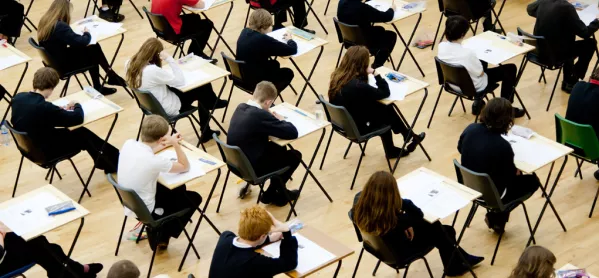Amanda Spielman, the Ofsted chief inspector, is right that too many schools in England are guilty of circumventing a curriculum of study with teaching to the test.
Some schools have extended GCSE preparation from two to three years, and others have even increased it to five years. There is no curriculum, only preparing for exams. And in other schools they don’t have schemes of work with a planned curriculum. Instead, they store PowerPoint presentations which get passed from one teacher to the next.
It is certainly a breath of fresh air to hear the leader of Ofsted talk about the “vast accumulation of human knowledge” that sits at the “heart of education”. Spielman is also right to note that Ofsted has played a role in establishing a system of schooling that is set up to demonstrate “progress” through Sats and exam results, which isn’t the same thing as providing a better education. However, this is vastly understated in her commentary. Here are five changes that would help schools to refocus their attention on the curriculum:
When schools are held accountable by exam results and other data it is no surprise that they then focus on these. They need to be freed from the stranglehold of league tables and a system that expects ever-improving results (which is an impossible task). Schools should be directly accountable to parents and survive by their reputation for teaching and the character of their pupils.
2. Engage with knowledge of the past and present
Knowledge of history is not irrelevant to the needs of 21st-century children. Disciplines are the sources of accumulated human knowledge to which Spielman refers. Disciplinary knowledge changes slowly because it has been produced over generations and is subject to scrutiny by a community of experts. In schools, pupils are introduced to this accumulated wisdom or powerful knowledge through subjects. The only way to properly prepare young people for what lies ahead is to arm them with the best knowledge we have. This way they can shape their own futures. To quote Alexis de Tocqueville, ”When the past no longer illuminates the future, the spirit walks in darkness.”
3. Prioritise discussion of the curriculum...
... and subject-specific professional development for teachers both within their own school and across networks of schools.
As communities of scholarly activity, schools should regularly be engaged in the discussion of what knowledge is important to study and why. Through subjects, pupils should be challenged to think about what is true, what is right and what is beautiful. Schools will need help with curriculum planning. The Department of Education needs to take responsibility for connecting schools with curriculum expertise in all subjects.
It should be a requirement that student teachers have a degree in their main subject discipline, a standard that has been eroded in recent years. They need to have a firm knowledge of the epistemic principles that underpin this subject and how these can be recontextualised in a curriculum. They need to learn the relationships between curriculum, pedagogy and assessment that lie at the heart of good teaching. And trainee teachers need to learn how to plan lessons and schemes of work that will develop pupils’ breadth and depth of understanding in the subject.
5. Teachers need to get back to planning and teaching their own lessons
While it is fine to share plans and to borrow ideas from other departments’ schemes of work, teachers need to “own” their curriculum. Bad teaching comes from following somebody else’s plan that you don’t really understand and from teaching the same learning objectives over and over. A good lesson is one where the teacher has thought hard about what they want to teach, how to get there and how to recognise when pupils understand the lesson content. Time to ditch the PowerPoint presentations.
Alex Standish is the subject leader for secondary geography PGCE and a senior lecturer at UCL Institute of Education. You can buy Alex’s Book: ’What Should Schools Teach?’ here.
Want to keep up with the latest education news and opinion? Follow Tes on Twitter and Instagram, and like Tes on Facebook.
